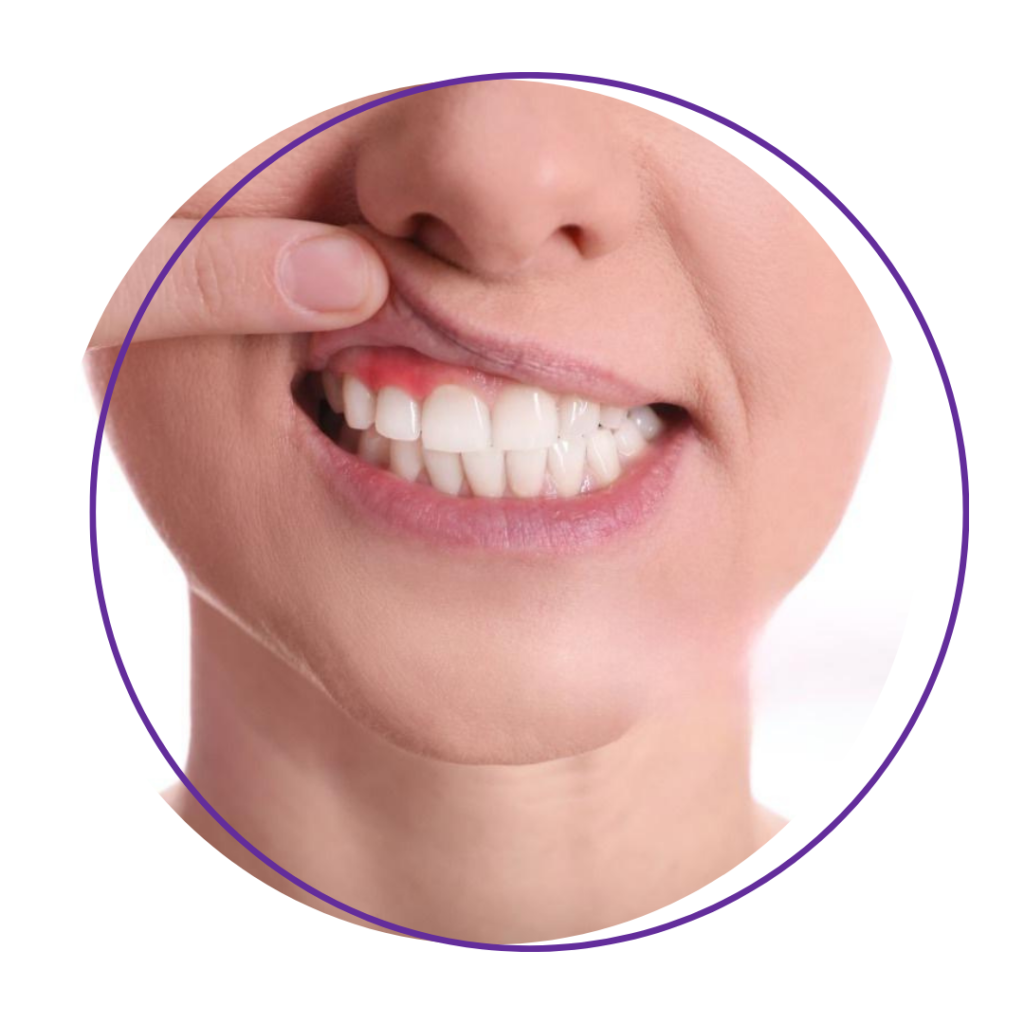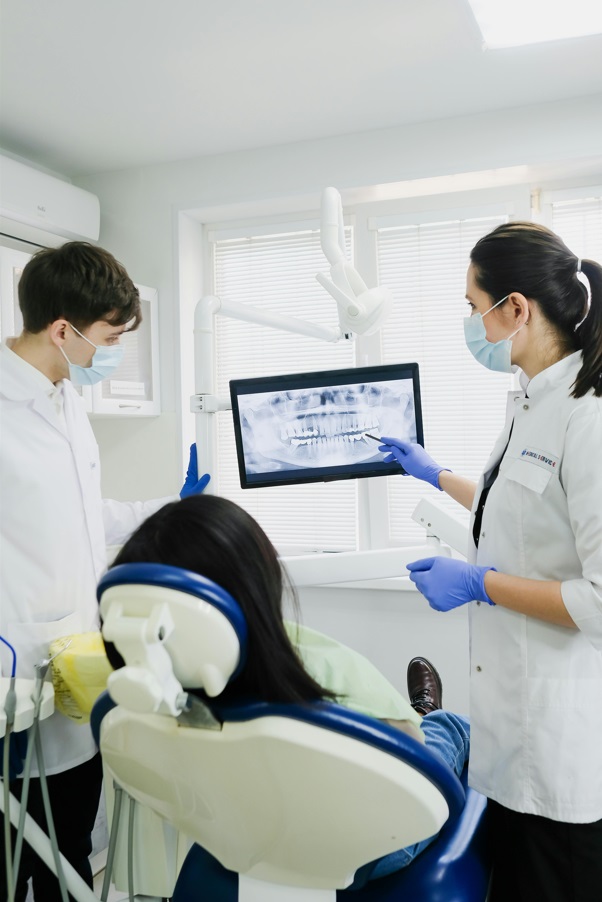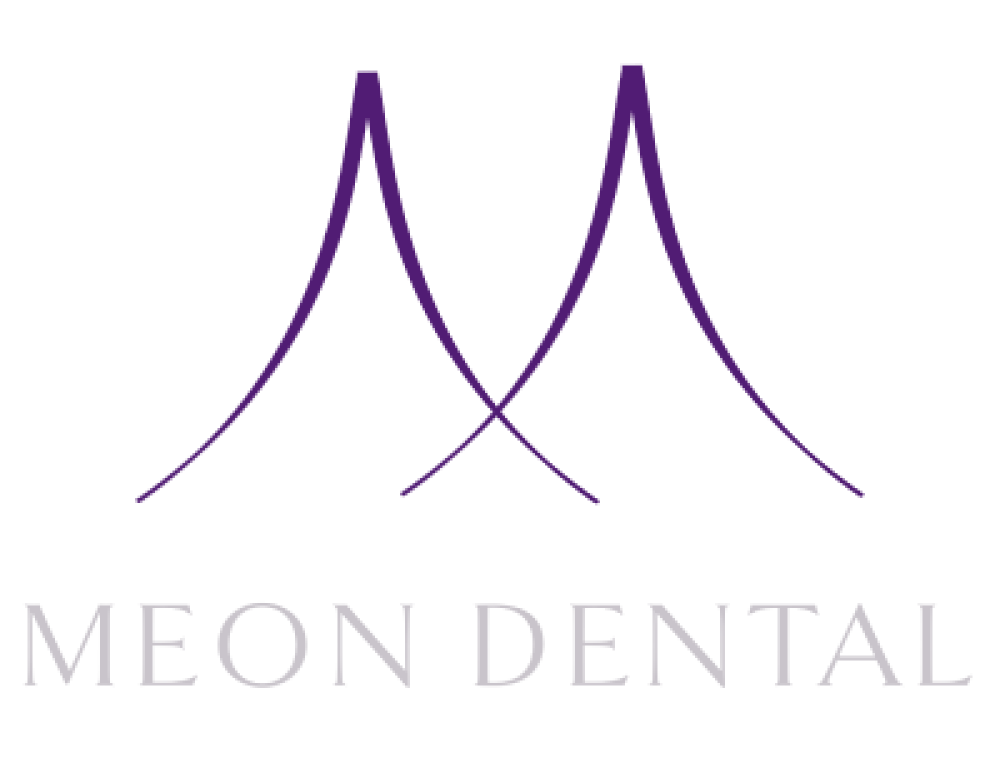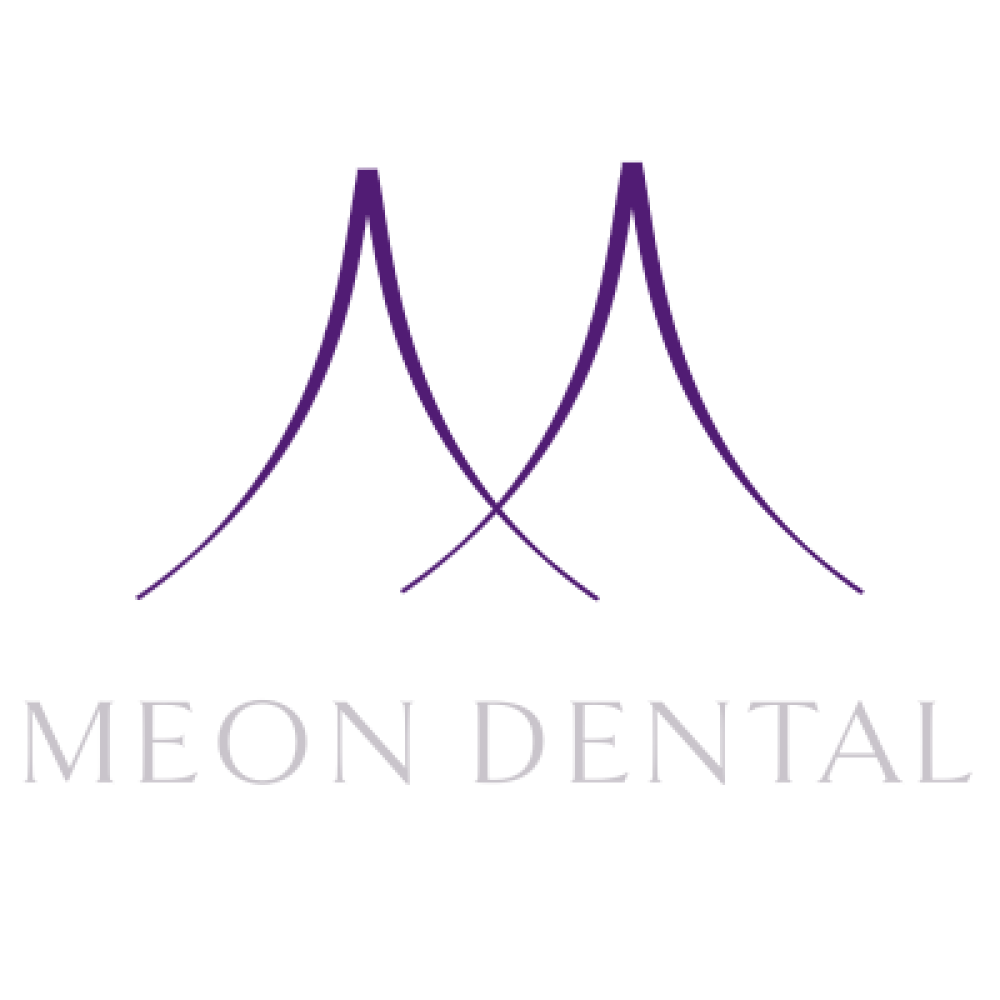Wondering if you have gum disease?
If you suffer from Periodontitis, otherwise known as gum disease, you will require some Periodontal treatment from your dentist.
At Meon Dental, we offer a range of advanced treatments to address various stages of periodontal disease, from mild gingivitis to more severe Periodontitis. Our dedicated team of dental professionals uses cutting-edge techniques and personalised care to restore gum health, reduce inflammation, and prevent further damage.

Our gentle & easy periodontal treatment process!
Step 1
Our skilled team conducts a thorough assessment of your gum health, examining the condition of your gum tissue, probing depths, and identifying any signs of inflammation or infection that may indicate the presence of periodontal disease.
Step 2
We utilise advanced scaling and root planing techniques to remove stubborn plaque and tartar buildup from above and below the gum line, effectively halting the progression of periodontal disease and promoting the healing of gum tissues.
Step 3
Following your comprehensive treatment, our commitment to oral health continues with personalised guidance and regular checkups, ensuring that your gums remain healthy and disease-free in the long term.
Answers to Commonly Asked Questions Before Your Periodontal Treatment Appointment
Periodontitis (per-e-o-don-TIE-tis), also called periodontal or gum disease, is a serious gum infection that damages the soft tissue around teeth. Without treatment, periodontitis can destroy the bone that supports your teeth. This can cause teeth to loosen or lead to tooth loss. Healthy gums are firm and fit snugly around teeth. The colour of healthy gums can vary. They may range from light pink in some people to dark pink and brown in others.
– Swollen or puffy gums.
– Bright red, dark red or dark purple gums.
– Gums that feel tender when touched.
– Gums that bleed easily.
– A toothbrush that looks pink after brushing your teeth.
– Spitting out blood when brushing or flossing your teeth.
– Bad breath that won’t go away.
– Pus between your teeth and gums.
– Loose teeth or loss of teeth.
– Painful chewing.
– New spaces that develop between your teeth that look like black triangles.
– Gums that pull away from your teeth, making them look longer than usual, are called receding gums.
– A change in the way your teeth fit together when you bite.
The treatment options for periodontal disease can vary depending on the severity of the condition. Here are some common treatment options:
Scaling and Root Planing (Deep Cleaning): This non-surgical procedure involves removing plaque and tartar deposits from the teeth and root surfaces. It helps to eliminate bacteria and reduce inflammation in the gums.
Periodontal Maintenance: After scaling and root planing, regular maintenance visits are essential to monitor your gums’ health and prevent periodontal disease progression.
Antibiotic Therapy: Antibiotics may be prescribed to help control bacterial infection and reduce inflammation in the gums. They can be taken orally or applied directly to the affected areas.
Surgical Treatments: In some cases, surgical intervention may be necessary to address advanced periodontal disease. This can include flap surgery, bone grafting, and tissue regeneration to repair damage to the gums and supporting structures.
Laser Therapy: Laser technology may remove infected tissue and bacteria from the gums, promoting healing and reducing inflammation.
Gum Grafting: If gum recession has occurred due to periodontal disease, gum grafting may be performed to cover exposed root surfaces and protect the teeth from further damage.
Ongoing Oral Hygiene Practices: Good oral hygiene habits, including brushing, flossing, and using antimicrobial mouth rinses are essential for managing periodontal disease and preventing recurrence. Your periodontist will evaluate your condition and recommend the most appropriate treatment plan based on the severity of your periodontal disease and your overall oral health.
Following your periodontist’s recommendations and maintaining regular dental visits are essential to effectively managing and preventing periodontal disease.
Before your periodontal treatment, following any specific instructions your periodontist provides is essential. Here are some general guidelines to consider in the hours leading up to your appointment:
Medications: Follow your periodontist’s instructions regarding the medications you are taking. If your periodontist has advised you to stop taking certain medications before the treatment, be sure to do so as directed. However, always consult with your healthcare provider before changing your medication regimen.
Eating and Drinking: Depending on the treatment you’ll receive, your periodontist may recommend avoiding food and drink for a certain period before your appointment. Follow any fasting instructions provided by your periodontist to ensure the success of your treatment.
Oral Hygiene: Before your periodontal treatment, maintain your regular oral hygiene routine, including brushing and flossing. However, avoid using any harsh or abrasive products that may irritate your gums.
Arrival Time: Arrive at your periodontal appointment on time or a few minutes early to allow for check-in procedures. This ensures that your treatment can proceed as scheduled and minimises any delays.
Comfort Measures: If you experience anxiety or discomfort before dental appointments, consider practising relaxation techniques such as deep breathing or calming music to help you feel more at ease.
Transportation: Depending on the type of treatment you’ll be receiving and any sedation options used, you may need to arrange for transportation home after your appointment. If you’ll be sedated during the procedure, it’s essential to have someone available to drive you home safely.
By following these guidelines and any additional instructions your periodontist provides, you can help ensure a smooth and successful periodontal treatment experience. Please contact your periodontist for clarification if you have any questions or concerns about your upcoming appointment.
Periodontal treatment, while generally safe and effective, may pose certain risks and complications if left untreated. Periodontitis, if not addressed, can progress to advanced stages, potentially leading to tooth loss. Additionally, the bacteria responsible for periodontitis can enter the bloodstream through gum tissue, potentially affecting other body parts. This condition has been linked with various systemic health issues, including respiratory disease, rheumatoid arthritis, coronary artery disease, preterm birth and low birth weight, and challenges in controlling blood sugar levels in diabetes.
Adopting good oral hygiene habits is essential to prevent periodontitis and mitigate associated risks. This includes brushing teeth for at least two minutes twice daily and flossing at least once a day. Flossing before brushing helps remove loosened food particles and bacteria, promoting cleaner teeth and gums and reducing the likelihood of periodontal disease. Additionally, regular dental checkups and cleanings with both a dentist and hygienist every 6 to 12 months are crucial. Individuals with risk factors such as dry mouth, certain medications, or smoking may require more frequent professional cleanings to maintain optimal oral health and prevent periodontitis. By implementing these preventive measures from a young age and maintaining them throughout life, individuals can reduce their risk of developing periodontal disease and its associated complications.

Aftercare for a Periodontal Treatment
Meon Dental prioritises your oral health and well-being even after your Periodontal procedure. The essential aftercare is crucial to maintaining good oral health and prolonging the longevity of your teeth.
We have prepared a comprehensive aftercare guide to assist you. Click here to see the Periodontal aftercare guide:

